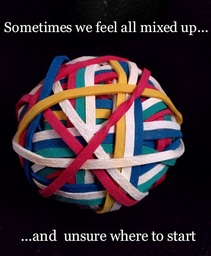What is Therapy?
Also known as Psychotherapy or Counselling, therapy aims to achieve change for anybody going through a difficult time. You may be struggling with life without quite knowing why, or may even feel afraid to find out why. Either way, if something inside knows you need help, it's courageous and empowering to reach out for support, even though the thought can be somewhat daunting.
There are many reasons why people seek this kind of assistance. Some are listed below, but this list is by no means exhaustive:
Also known as Psychotherapy or Counselling, therapy aims to achieve change for anybody going through a difficult time. You may be struggling with life without quite knowing why, or may even feel afraid to find out why. Either way, if something inside knows you need help, it's courageous and empowering to reach out for support, even though the thought can be somewhat daunting.
There are many reasons why people seek this kind of assistance. Some are listed below, but this list is by no means exhaustive:
|
|
Essentially, the key aspect of Psychotherapy and Counselling is about establishing an honest trusting therapeutic relationship, where you feel safe to explore your inner world and unique experiences without any fear of being judged.
At Leicestershire Therapy, Laura practices Person-Centred Therapy which works on the premise that every human being is innately good, and has within themselves the ability to heal and reach their full potential. This must happen at the clients own pace, because it is this journey of self discovery and acceptance that allows healing to take place.
Many of our problems are caused when we try to dismiss, trivialise or otherwise eradicate very normal feelings. Some of the common thoughts and beliefs we may hold are:
At Leicestershire Therapy, Laura practices Person-Centred Therapy which works on the premise that every human being is innately good, and has within themselves the ability to heal and reach their full potential. This must happen at the clients own pace, because it is this journey of self discovery and acceptance that allows healing to take place.
Many of our problems are caused when we try to dismiss, trivialise or otherwise eradicate very normal feelings. Some of the common thoughts and beliefs we may hold are:
|
Again, this list is endless, but each message has a similar impact. When we attempt to consistently suppress, ignore or contort our most raw and natural feelings, it can lead to both psychological and physical stress or illness. Some people are aware this is happening but feel frustrated and powerless to change it. Others may be totally unaware, yet still feel lost and confused.
Regardless of why we need the help, finding a professional we can open up to will guide us in making sense of our struggle. Person Centred Therapy takes us on a journey of self discovery and awareness, healing, understanding and self acceptance. It aims to build confidence, provide a greater connection with the true self, and alongside this, an ability to develop and maintain more open and honest relationships.
Regardless of why we need the help, finding a professional we can open up to will guide us in making sense of our struggle. Person Centred Therapy takes us on a journey of self discovery and awareness, healing, understanding and self acceptance. It aims to build confidence, provide a greater connection with the true self, and alongside this, an ability to develop and maintain more open and honest relationships.
|
What is Play Therapy?
Children do not usually have the self awareness or emotional literacy to communicate how they are feeling in words, as is expected in talking therapy. Play, therefore, is a safe and effective way for children to experience and express their feelings in their own way and at their own pace, without feeling questioned or judged. The acceptance and validation experienced by the child in Play Therapy, helps them to normalise and embrace their own feelings. They may re-enact traumatic or difficult life situations, which will help them to make sense of their experiences. Or they may play spontaneously, enjoying the freedom of choice. The trust and respect developed in the therapeutic relationship enables children to build trust within themselves, helping them learn to manage relationships and conflicts more appropriately. |





